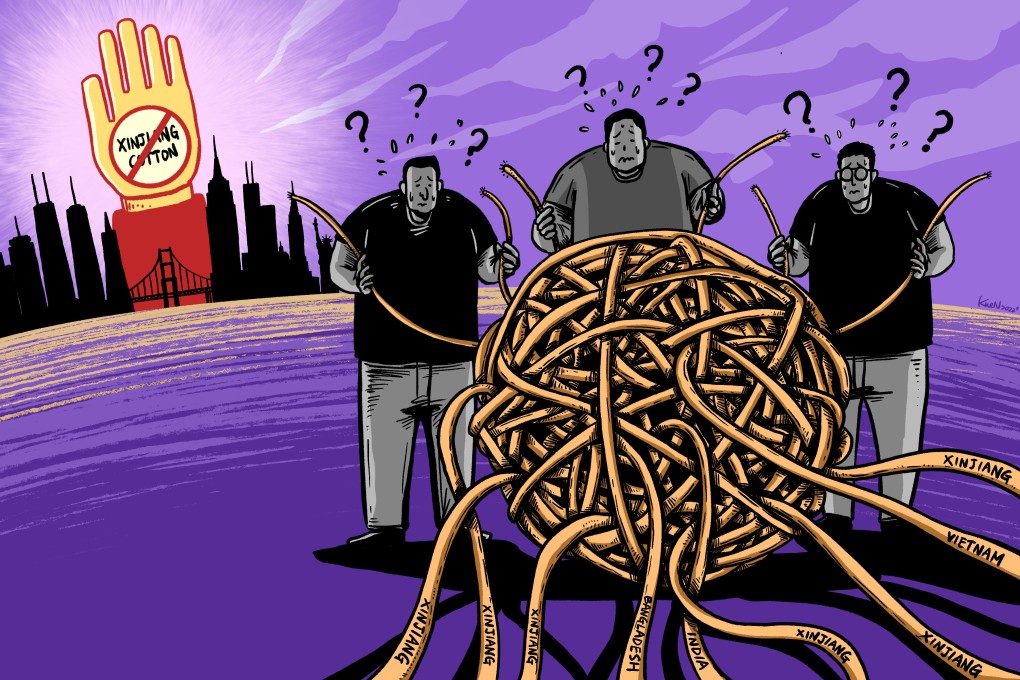Beyond China: US’ Xinjiang cotton ban has far-reaching implications, even for Asian alternatives
- US boycott of Xinjiang cotton looks to reshape global textile supply chain by isolating China – the world’s biggest textile producer, exporter and consumer
- But global textile supply chain is so interwoven that suppliers in nations such as Vietnam and Bangladesh could face setbacks as they shift sourcing away from China

But the reality is far more complicated, as the global textile supply chain is so deeply intertwined that what looks to be a potential boon could instead be a crushing burden.
The concern came into the spotlight as the Bangladesh Garment Buying House Association (BGBA) asked its members last month to be cautious about sourcing raw materials imported from the Xinjiang Uygur autonomous region after Washington’s Uygur Forced Labour Prevention Act came into effect.
Kazi Iftaquer Hossain, president of the non-profit BGBA, told the Post that although the act has not yet impacted the Bangladeshi garment industry, it may still face setbacks due to the US’ import restrictions.
“So far as we know, Bangladesh garment exporters haven’t encountered difficulties till now, but they send messages relevant to the current change of their policy,” Hossain said. “Here, we exporters have to prove that no Xinjiang province materials – either wholly or partially – are used to manufacture our garments, so it’s a real challenge.”
Bangladesh imports about 40 per cent of cotton products from China, Hossain added when explaining how “it’s difficult to change this major sourcing”.
